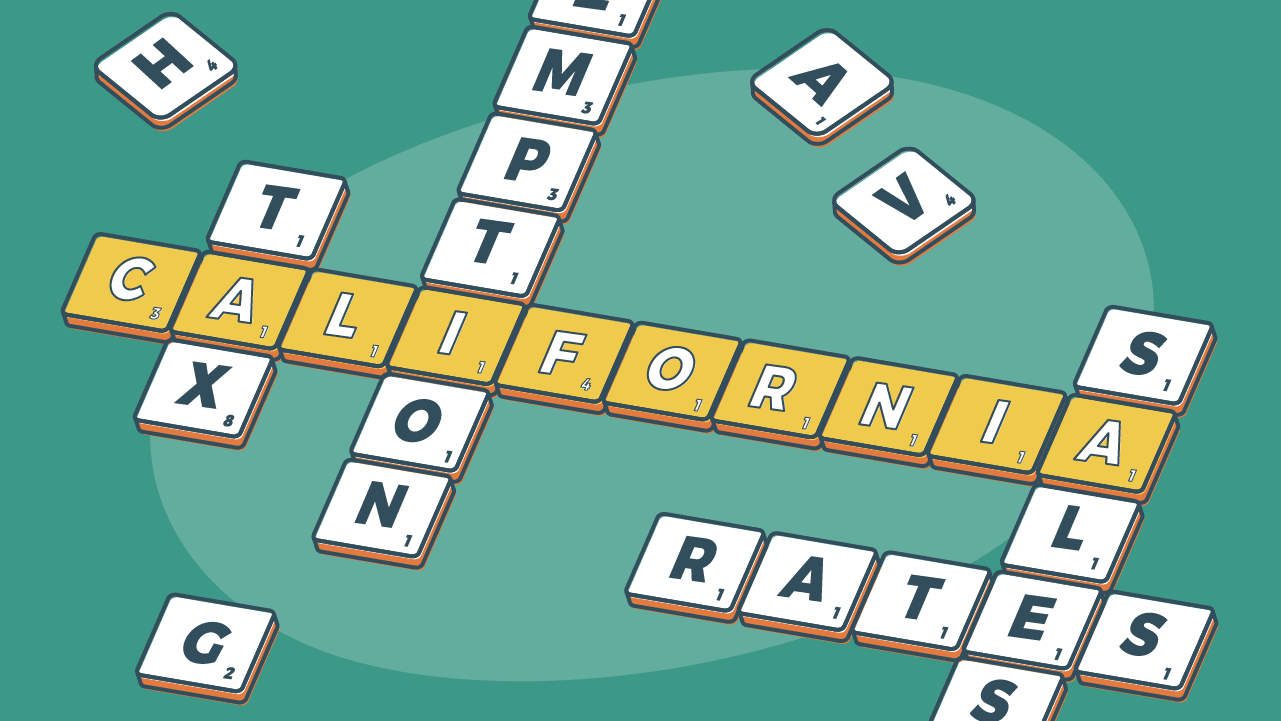You're here:
California Sales Tax, In a Nutshell

As one of the US’s more left-leaning states, there’s no getting around it: if you’re selling in California, you’re on the hook for collecting and remitting the appropriate sales tax.
But how much will you owe in California sales tax? Could you be subject to additional sales taxes beyond the state’s base rate? Let’s break down tax in California in this guide.
Sales Tax Rates in California
As of January 2020, California uses a base state sales tax rate of 6.0%, in addition to a mandatory local rate of 1.25%. So effectively, California consumers are subject to a minimum state sales tax rate of 7.25%.
However, sales tax rates in California vary by district, as cities and counties may impose their own local sales taxes as well. For instance, although cities like Coloma and Palermo only charge the minimum 7.25% sales tax rate, residents of Santa Fe Springs pay as much as 10.5% overall, according to the California Department of Tax and Fee Administration.
Sales Tax Exemptions
As in many US states, California makes some purchases exempt from tax collection. A few currently include:
- Certain types of groceries (for example, California considered candy to be a grocery, but not soda)
- Certain types of medical devices (such as prosthetics)
- Prescription drugs
- Hot beverages, in some circumstances
- Certain types of farm equipment
- Certain alternative energy devices
In addition, the state of California uses lower consumption tax rates for certain groups of items. Clothing, prepared foods, and over the counter (OTC) medicines are subject to a lower 6% rate in some cases, though these may be subject to price limit caps or not applicable in all situations.
Take hot coffee, for example. On its own, it isn’t considered taxable. However, if it’s sold in combination with cold, prepared foods - or if the merchant selling it is subject to the 80-80 rule or California Board of Equalization (BOE) Regulation 1574 - it’s a taxable purchase.
Further, some types of customers are exempt from consumption tax in the state of California. Government agencies, non-profit organizations (in some cases), and sellers who are buying goods to resell them may not be required to pay you sales tax on their purchases.
Making Sense of California Taxes
If you’re feeling confused about whether goods you sell in the golden state will be subject to sales tax, you’re not alone. Collecting and remitting the correct amount of tax in the state is complicated - and we haven’t even gotten into the issues of sales tax on digital goods or nexuses created by Amazon’s presence in the state.
Fortunately, you don’t have to go it alone when it comes to making sense of it in California. Sign up for a free trial with Quaderno to see how easy and pain-free tax collection can be with the right partner by your side.
Note: At Quaderno we love providing helpful information and best practices about taxes, but we are not certified tax advisors. For further help, or if you are ever in doubt, please consult a professional tax advisor or the tax authorities.
